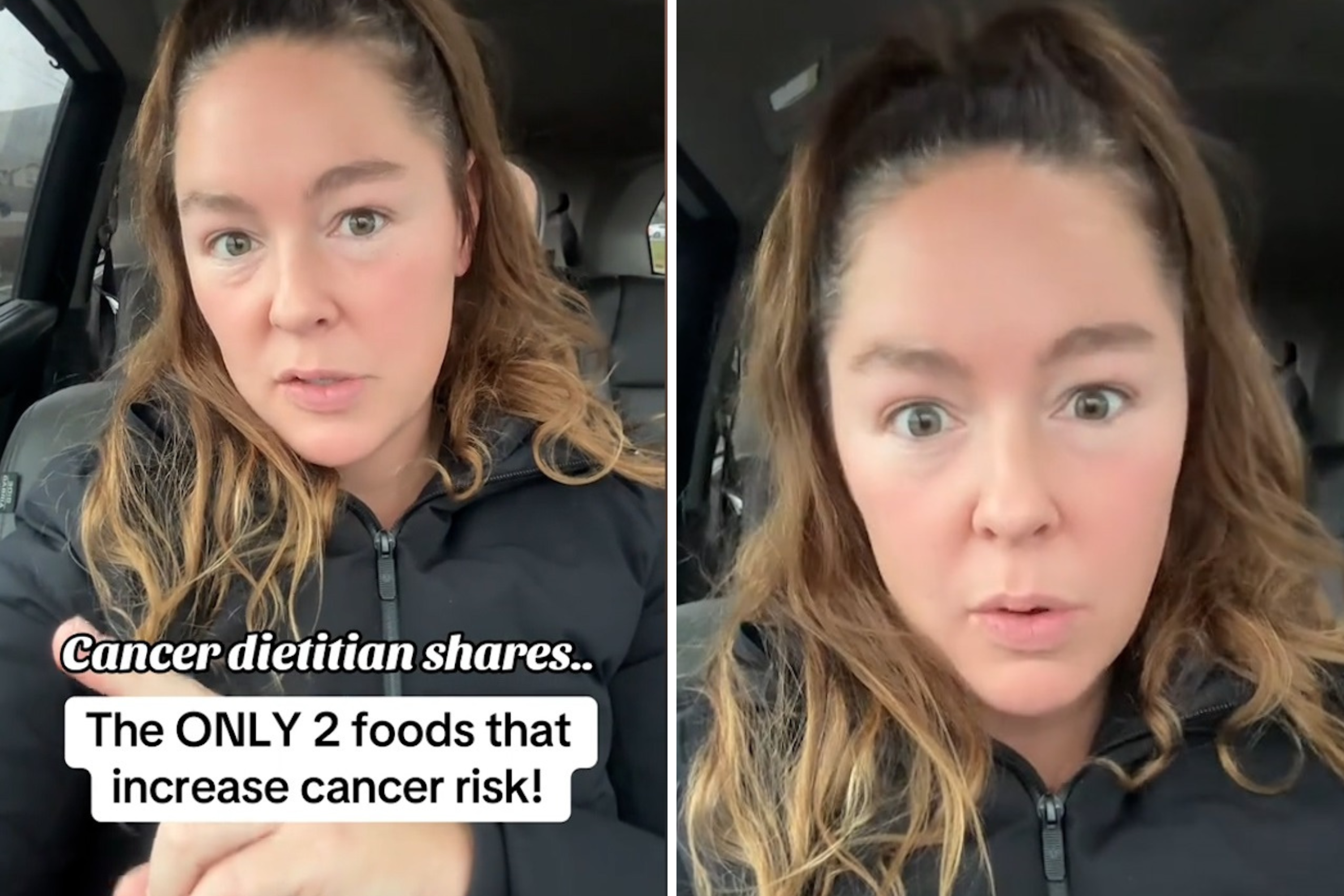
Many people might be unwilling to cut one of the cancer-causing items out of their diet
A cancer dietician has shared two common items that she has recommended you avoid to reduce the risk of getting the deadly disease.
The two items are both some of the first on the shopping list, and she believes that cutting them out your diet will massively reduce your cancer risk.
Nichole Andrews is a registered dietitian nutritionist who specialises in oncology nutrition and working with cancer survivors to build their health back up.
.webp)
She spoke about the risks in a video on Instagram (Nichole Andrews via Instagram)
Taking to Instagram, she shared the video titled ‘Cancer dietician shares the only two foods that increase cancer risk’.
In the video she said: “Alcohol consumption isn’t just a buzz-kill for your liver health; it also heightens the risk of breast, mouth, throat, oesophageal, and colon cancers.
“The science behind it is eye-opening. Alcohol metabolises into acetaldehyde, a known carcinogen, which can wreak havoc on our DNA, raising cancer risk.”
Not only did she rule out alcohol, the second one she listed is perhaps an even more common choice.
She went on to say: “Processed meats, including ham, salami, bacon and sausages such as frankfurters and chorizo – they’re linked to an increased risk of colorectal cancer.
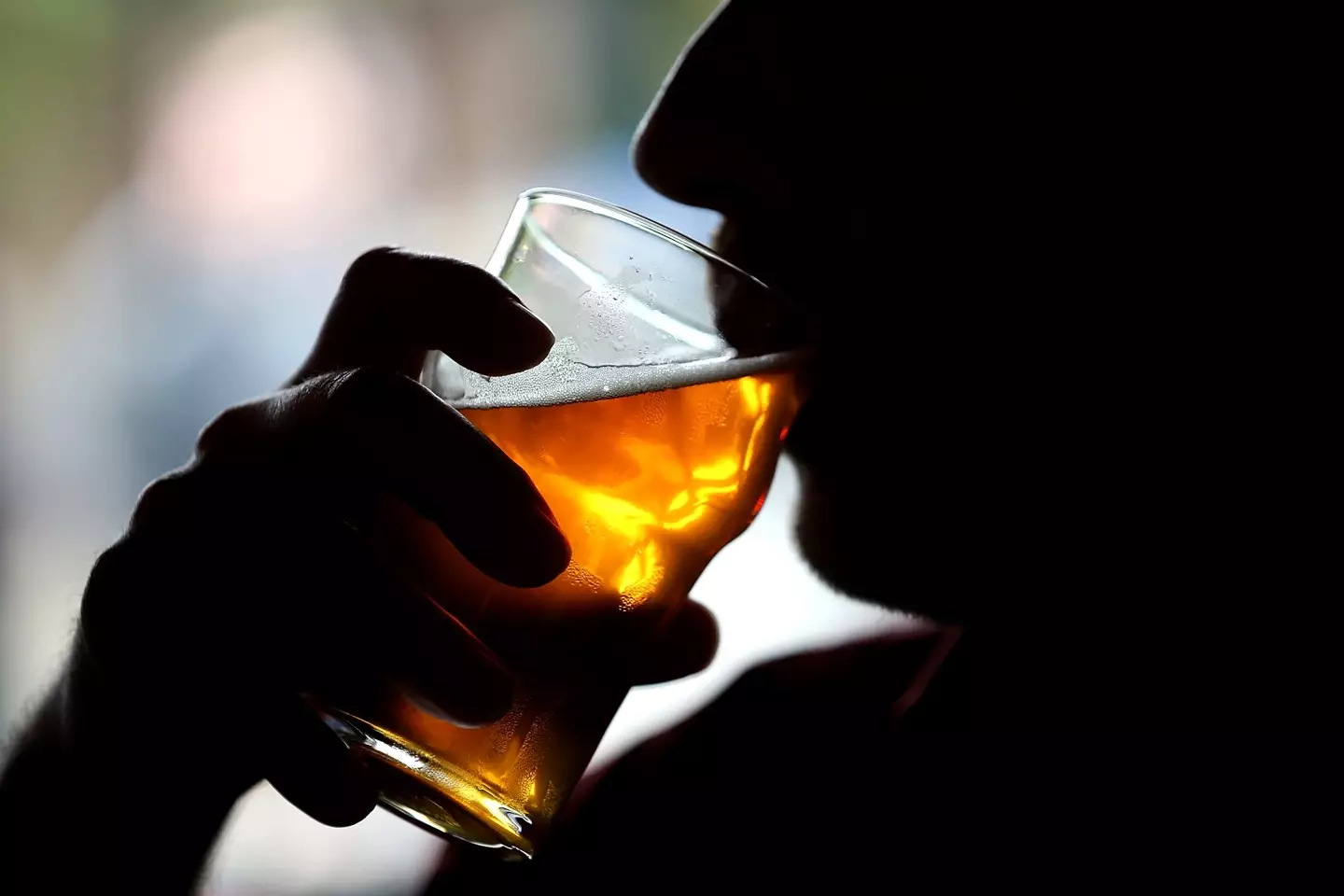
They said alcohol is a major risk factor in contracting cancer (Justin Sullivan via Getty Images)
“Processed meats contain compounds like nitrites and N-nitroso compounds, which raise the cancer risk.
“The high heat involved in processing meats can produce carcinogenic compounds like polycyclic aromatic hydrocarbons and heterocyclic amines, further upping the cancer risk.
“Red meats contain heme iron, which, when metabolised, may generate harmful compounds that could damage the colon.”
She went on to expand on this in an interview with Newsweek, in which she said a lot of her patients think sugar will increase their cancer risk, but clarified that overconsumption is only dangerous in terms of obesity.
She said: “Obesity is a proven risk factor for at least 13 types of cancer because it promotes chronic inflammation, hormonal imbalances (like higher levels of insulin and estrogen), and metabolic changes that create a favorable environment for cancer development.
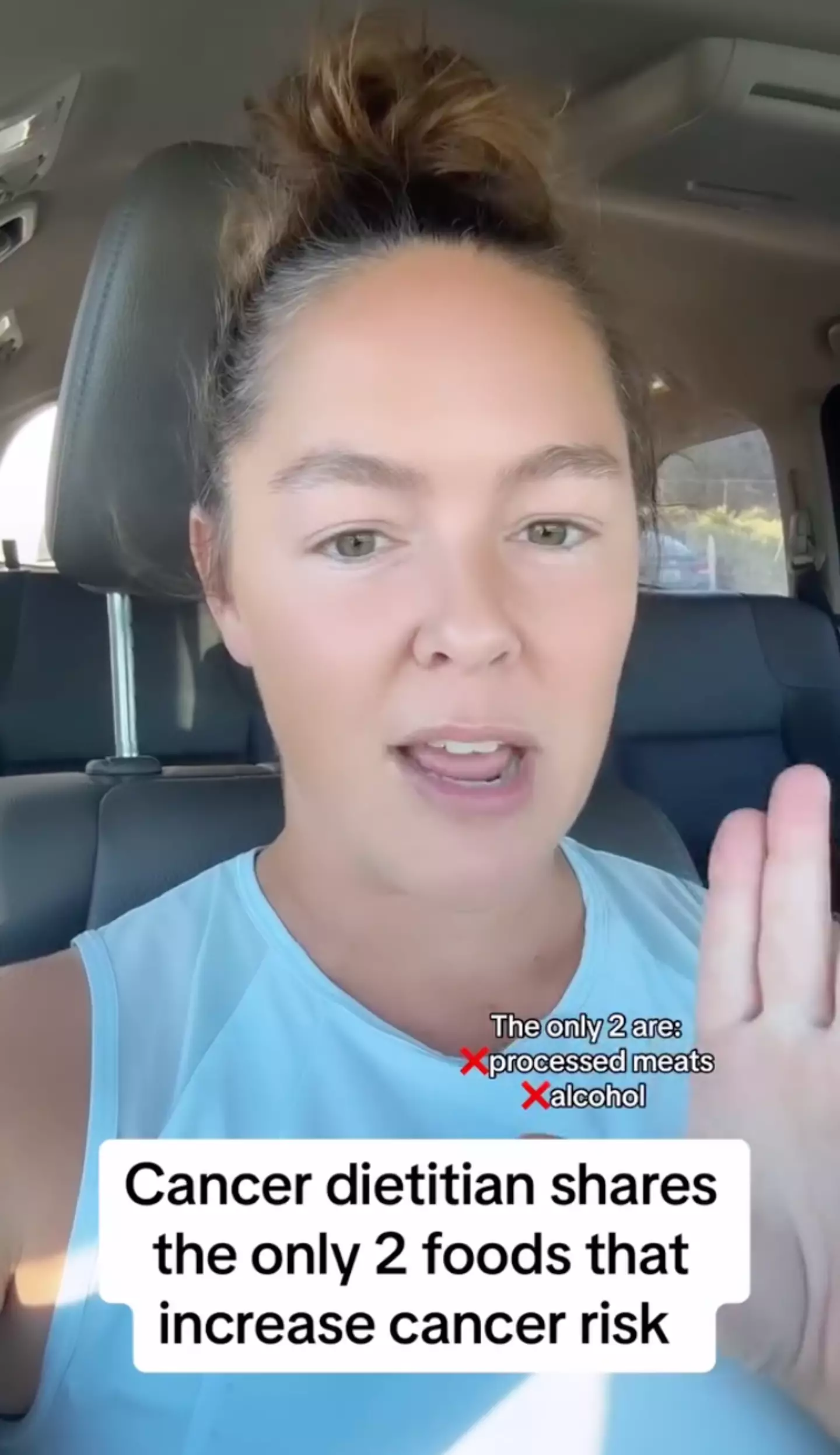
She shared it on Instagram (Nichole Andrews via Instagram)
“The key takeaway: It’s not sugar itself—it’s the overall calorie balance and body fat that matter most.”
The cancer-focused dietician went on to say: “Diet is one of the most impactful lifestyle factors in cancer prevention and survivorship.”
She went on to state what she believes is the diet to focus on isn’t simply to cut out meat or sugar altogether, but to focus on ‘high-quality animal proteins, like fish, eggs, poultry, or lean meats or lean dairy, paired with an abundance of vegetables’.
She said of this diet: “This approach is sustainable, enjoyable, and scientifically supported for cancer risk reduction”.
Andrews also stated in her Instagram video, after clearing up which two things to avoid, that she isn’t saying you can’t have fun in your diet.
She said: “I want to be very clear that there’s no direct link between each sugar and causing cancer.
https://www.instagram.com/reel/C9Lin_Cyyf6/embed/?cr=1&v=14&rd=https%3A%2F%2Fwww.ladbible.com&rp=%2Fnews%2Fhealth%2Fcancer-risk-foods-to-avoid-alcohol-794863-20241227%3Ffbclid%3DIwZXh0bgNhZW0CMTAAAR1Tl8WgZjzPC4pUu_Rhudc-ABcXWXQRu8VrDgNFO-TPQAvZsgI-O1sAhiA_aem_JYb8J3I56IVafGKDMLdMiA#%7B%22ci%22%3A0%2C%22os%22%3A181590.5%2C%22ls%22%3A10603.099999964237%2C%22le%22%3A178839.89999997616%7D
“It’s important to focus your goals more on how you can become more curious and aware of what’s in your foods – what are the nutritional values, how do you feel after eating certain meals, and how to create plates that not only taste good but also support your usual lifestyle and a Cancer Prevention lifestyle that has been supported through human data.”Featured Image Credit: Tiktok/Oncology.Nutrition.RD/Getty Stock Images
Topics: Health, Cancer, Alcohol, Lifestyle

Michael Slavin
Advert
Advert
Advert
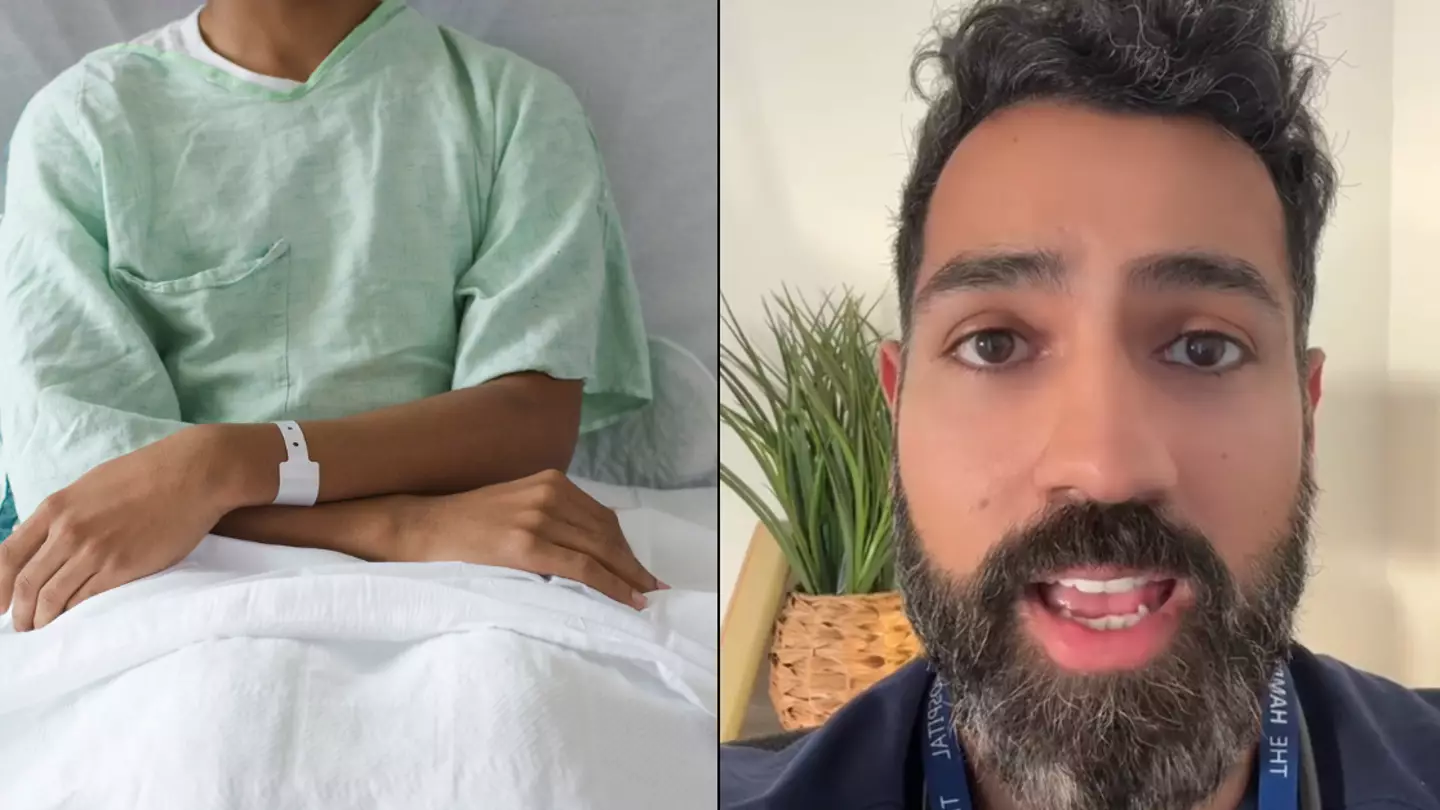
Published 13:55 21 Dec 2024 GMT
Doctor explains common symptoms of cancer that has rising cases in young people
It’s ‘aggressive’ and can spread quickly so it’s important to keep an eye out for a key symptom

A doctor has explained the common symptoms of a cancer that has rising cases in young people.
While Cancer Research UK points out in its statistics that Hodgkin lymphoma is not among the 20 most common cancers, incidence rates are projected to rise by 13 percent between 2023 – 2025 and 2038 – 2040.
It can develop at any age but it mostly affects people between 20 and 40 years of age and those over 75, with a 2022 study noting that its increase has been especially noticed in the younger population – though it further states that the reason is still unknown.
The cancer develops in the lymphatic system which is part of your immune system and is a network of vessels and glands spread throughout your body – with one sign sometimes appearing when you drink alcohol.
Dr Ahmed is a GP based in the UK and shared a video to TikTok urging people to not ignore ‘if you have any symptoms’.
.jpg)
It’s commonly spotted in the neck, armpits and groin. (Getty Stock)
“So, in Hodgkin lymphoma, a certain type of cell called B lymphocyte grow in number abnormally,” he explains. “They cluster together in certain parts of your body, most often your armpits, neck and groin.”
And so, Dr A says the ‘most common symptom’ is therefore a lymph node ‘that’s inflamed and enlarged that won’t go away again’.
He points out that you want to keep an eye out for these lumps particularly in your neck, armpits or groin.
“If you’ve got one of these or a lymph node that’s not going away after four to six weeks, you must get it checked out,” the doctor adds.
He also includes other symptoms such as ‘a persistent fever, persistent cough or breathlessness, a high temperature and weight loss’.
While diagnosis ‘can be quite quick’ the NHS explain the only way to do so is by carrying out a biopsy.
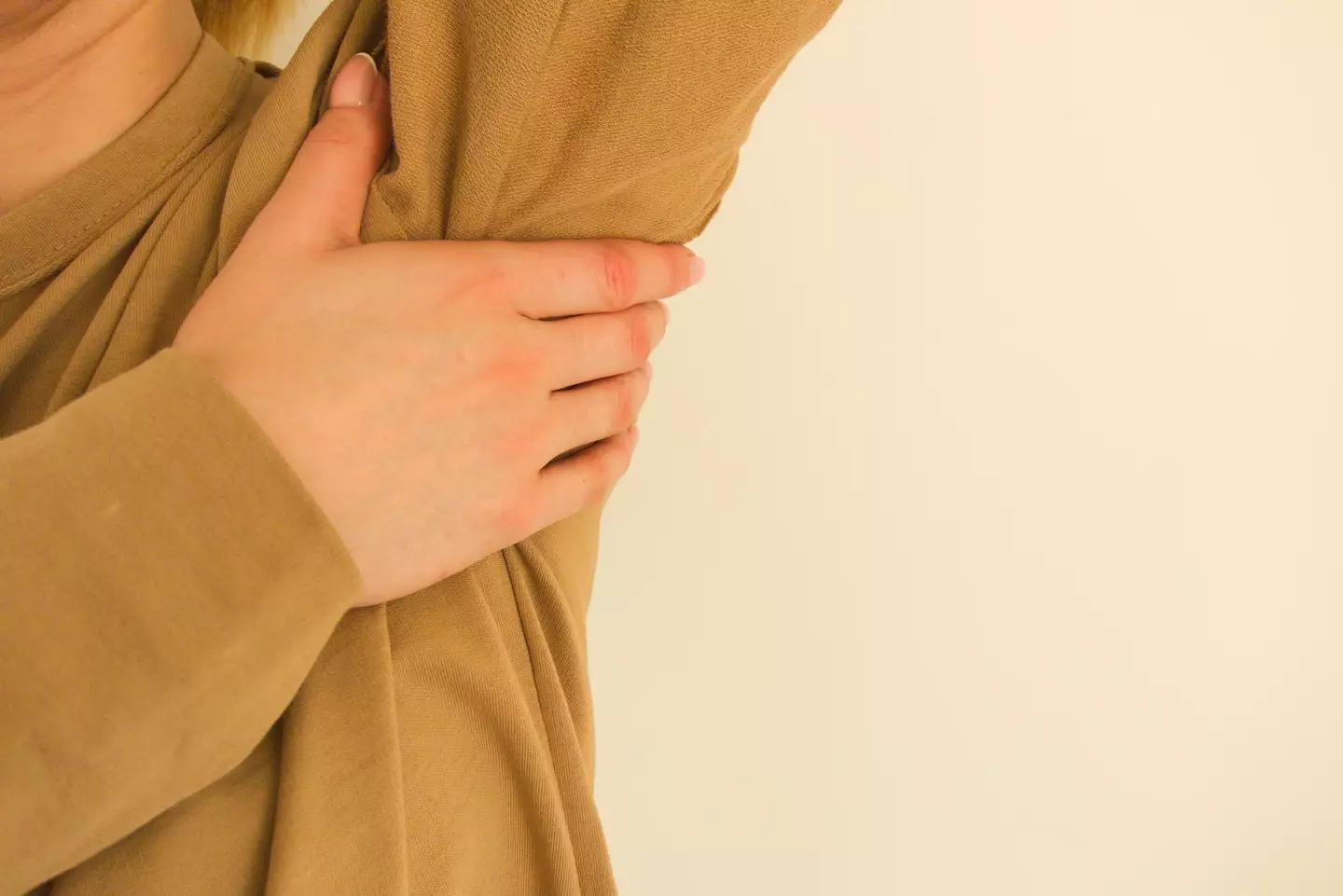
Hodgkin lymphoma typically spreads quickly. (Getty Stock)
This is a minor surgical procedure where they will remove a sample of affected lymph node tissue to be studied in a lab.
Dr A advises that the cause of Hodgkin lymphoma isn’t exactly known, but there are risk factors including: “If you’ve got a weakened immune system, if you’ve previously had glandular fever, have a family history.”
The NHS also adds that your risk of developing it is increased if you take immunosuppressant medicine.
“Treatment can involve radiotherapy and chemotherapy and prognosis is fantastic,” Ahmed says.
And while it is a ‘relatively aggressive cancer’ and can spread through the body quickly, it is one of the most easily treated types of cancer.
Overall, around eight out of 10 patients live at least five years and most of them will be cured.
The doctor adds this ‘is why it’s important you get diagnosed early and see a doctor if you have any risk factors or symptoms’.Featured Image Credit: Getty stock/TikTok/dra_says

Jess Battison
Advert
Advert
Advert
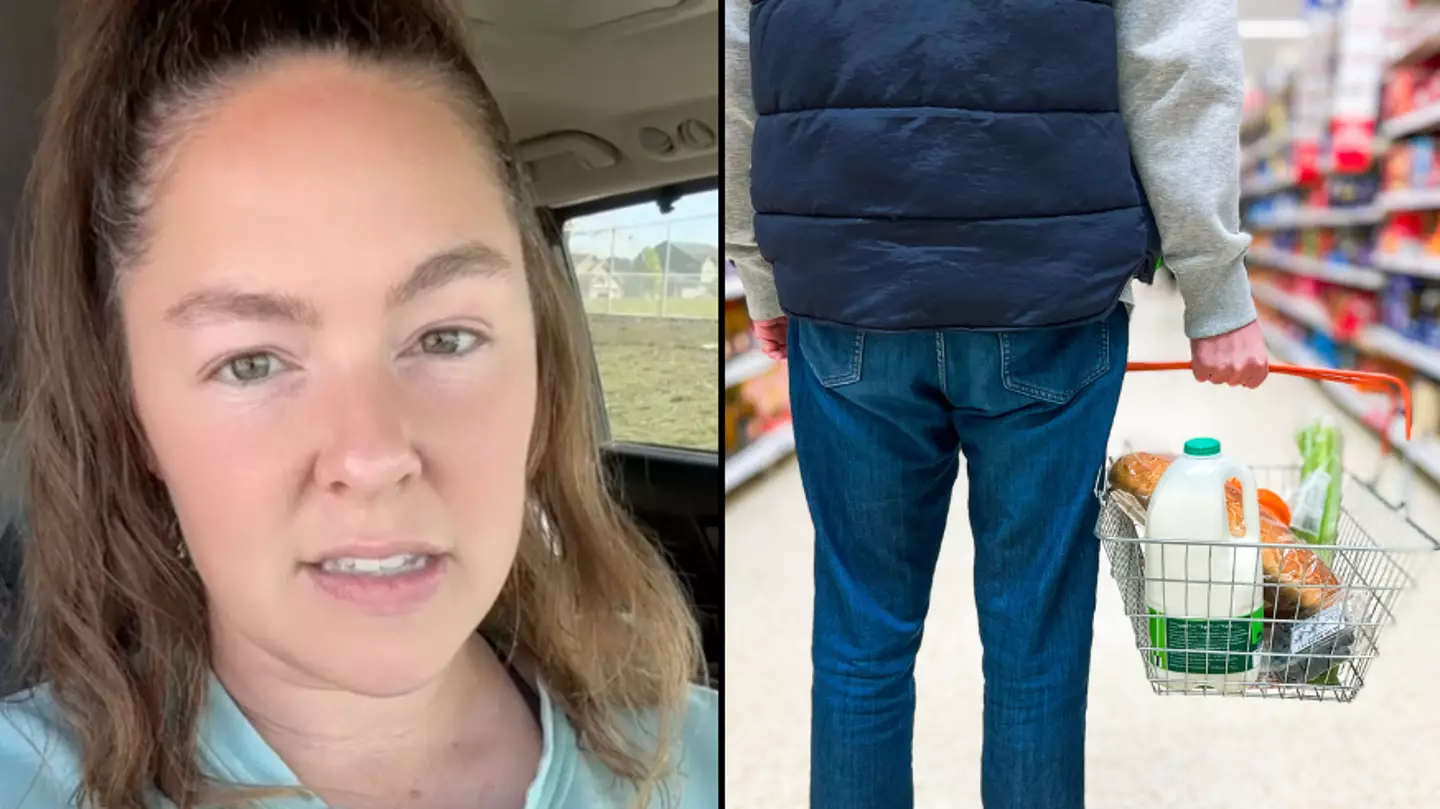
Updated 17:10 4 Aug 2024 GMT+1Published 14:04 4 Aug 2024 GMT+1
Cancer dietitian warns people of the seven foods and lifestyle habits to avoid that increase risk of getting disease
Nichole Andrews says her list of seven lifestyle changes are the only things that will reduce your risk of cancer

A cancer dietician says there are only seven lifestyle changes you need to make to reduce to reduce your list of cancer.
Around the world, about 10 million people die from cancer every year, making it one of the largest health problems that we face today.
There are over 200 types of the disease, depending on the organ or tissue that it originates from.
Every day we’re hit by an array of different cancer warnings, with a huge number of habits and food groups apparently putting us at risk.
But registered cancer dietician Nichole Andrews, who goes by @oncology.nutrition.rd on TikTok, says reducing our cancer risk is a lot simpler than you might think.
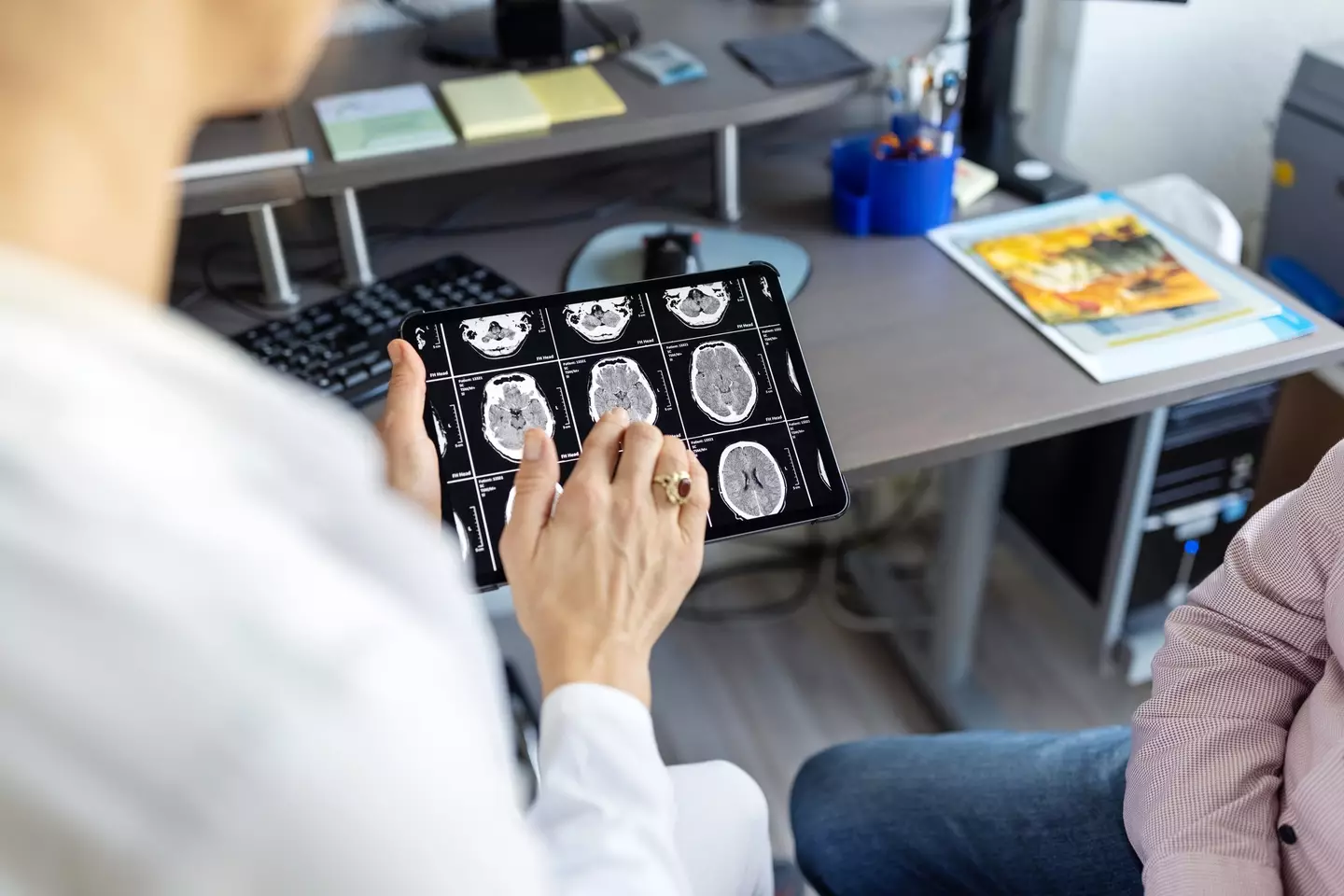
There are some things you can do to decrease your risk of getting cancer. (Getty Stock Photo)
She said in a TikTok video: “There are only seven things – nutrition and lifestyle – that increase your cancer risk. Seven things – it’s the complete list.”
Alcohol and tobacco
The first two things are alcohol and tobacco, as she explains: “Tobacco is well known, but alcohol isn’t for most people.
“In fact, about 50 percent of Americans don’t even know that alcohol increases cancer risk – it increases risk of six different cancers.”
To reduce your risk of cancer, Nichole says, you need to cut alcohol completely out of your diet.
Processed meats
According to Nichole, you need to wave goodbye to burgers and full English breakfasts.
She says: “Number three is gonna be processed meats, deli meats, bacon, sausages, those pre cooked meats, the stores, they increase the risk of colorectal cancer at any consumption.
“The more you consume, the higher risk of colorectal cancer.”
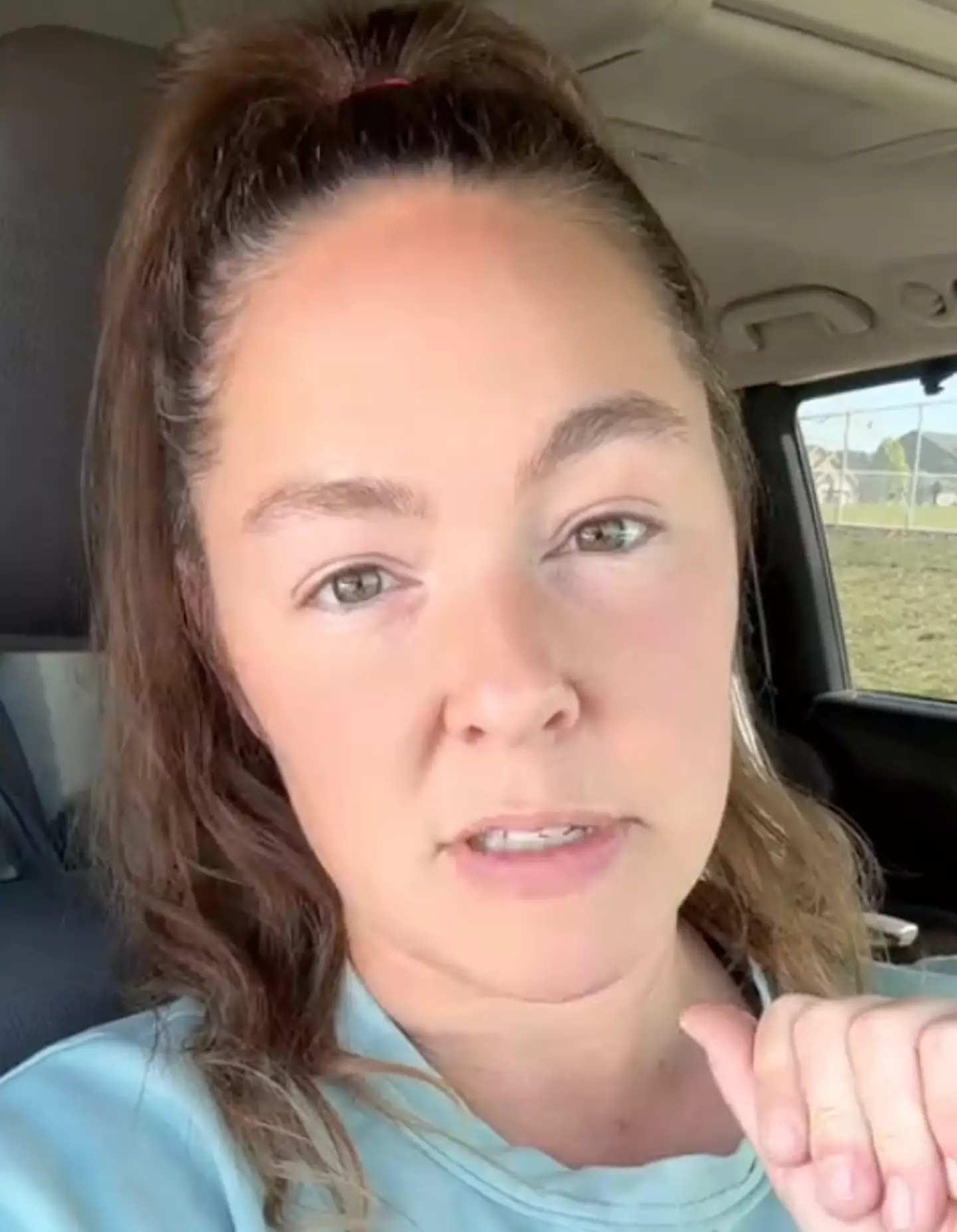
Lifestyle is everything when it comes to health. (TikTok/@oncology.nutrition.rd)
Excess body fat tissue
Nichole then explains that the next is having excess levels of body fat tissue, as you’ll want to get it to a healthier level.
“This doesn’t mean you have to have the scale number go down,” Nichole says, but you could need to get your amount of body fat tissue down to a healthy level.
If not, you could increase the risk of 13 different cancers.
Not eating enough plants
Next, she highlights: “You need to be aiming to get 30 grams of fibre from plant foods a day.
“If you have a low fibre diet, it’s going to increase your risk of cancer.”
Not getting enough exercise
Nichole then explains that you need to aim for 150 minutes of exercise or physical activity a week, as by ‘not moving, you’re increasing cancer risks’.
The NHS says you either need to be doing 150 minutes of moderately intense activity or 75 minutes of very intense exercise every week, and you should do strengthening exercises to work all major muscle groups at least two days a week.
Taking to many supplements
She concludes by saying to avoid taking excessive supplements, as they can eventually damage cells.
Turns out that it sounds quite easy to reduce your risk of cancer. It’s a matter of cutting these things down bit by bit to reach your long-term health goals.Featured Image Credit: TikTok/oncology.nutrition.rd/Getty Stock Images

Joshua Nair
Advert
Advert
Advert
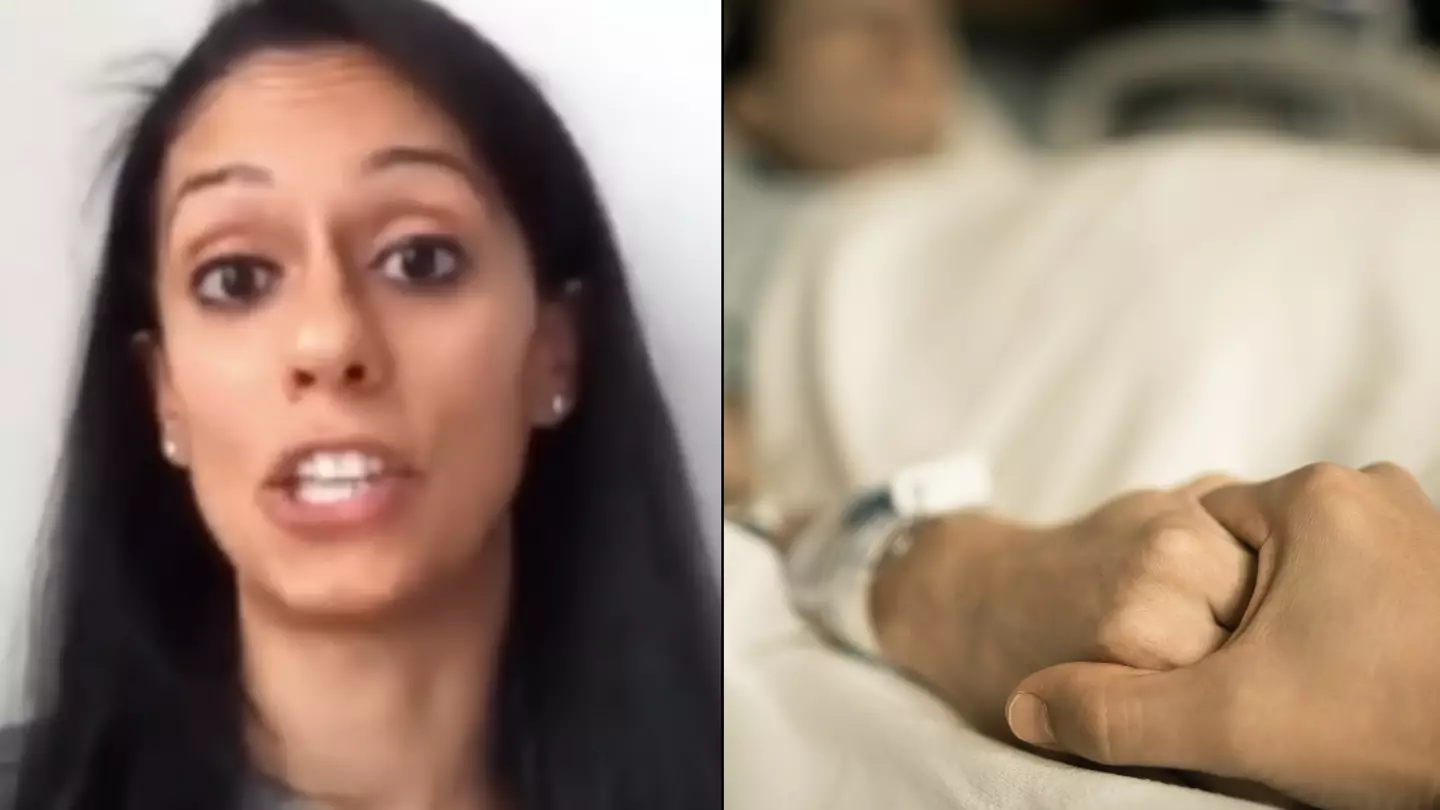
Published 16:43 13 Dec 2024 GMT
Palliative care doctor shares the most common phrases people say moments before they die
Dr Simran Malhotra revealed what her patients are usually thinking in their final hours

Doctors might have a reputation for saving lives and tending to the sick, but they play an equally important role in helping their patients through death too.
Some clinicians also specialise in palliative care, meaning they are equipped to care for people with serious illnesses and those who sadly won’t ever recover.
Whether it’s relieving patients from pain, managing their symptoms or simply lending a sympathetic ear, these heroes do it all – including Dr Simran Malhotra.
She has been in the world of medicine for more than a decade and has cared for thousands of patients in their final hours over the years.
End of life doctor on dying
Credit: BBC Ideas
0 seconds of 34 secondsVolume 90%
She’s a triple board certified physician in internal medicine, a hospice and palliative care doctor, and a lifestyle medicine coach, so she really has got most bases covered.
The medic, from the US, explained that she’s learned a lot from her patients throughout her career – including what their biggest regrets are when they are lay on their death bed.
Inevitably, this has influenced the way she navigates her own life, and Dr Malhotra hopes that she can encourage others to take heed of the words of wisdom she has heard along the way too.
Explaining how she ended up in palliative care, she told Health Digest: “I remember one of my very first rotations during my internal medicine residency was in the ICU.
“I just felt so much for the patients and their families because I felt like they didn’t get enough time and attention from the medical team.
“And so for me, when I did my first palliative care rotation, I got to sit down with a family, I got to understand what their goals were, what their hopes were, what their worries were, and it really allowed me to get in with them in their experience and try to provide the most personalised and compassionate care possible.”
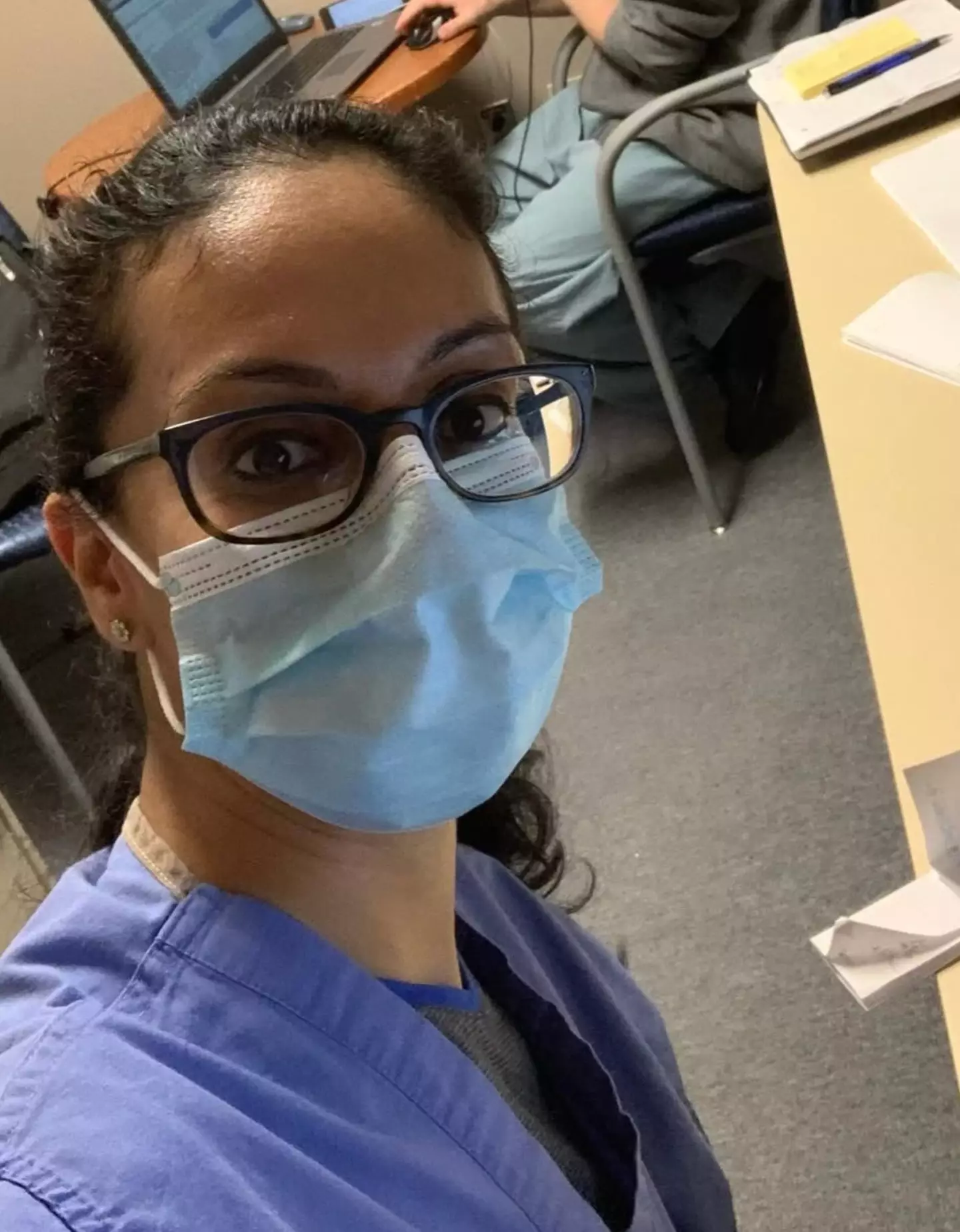
Dr Simran Malhotra revealed the most common things which patients say before passing away (Instagram/@drsimran.malhotra)
With this kind of attitude, it’s no wonder that patients feel comfortable sharing their final thoughts with her.
She explained that the majority of people tend to discuss whether they feel as though they have fulfilled everything they wanted to in life.
Dr Malhotra said: “I found that my elderly patients will often share things like, ‘I’m at peace’ or ‘I’ve lived a good life’.
“Whereas, for my younger patients, I haven’t really had any patients that have shared openly any specific words. It really comes down to like, ‘I’m not ready to die, I have so much more living to do’.”
However, she doesn’t think that age is the reason for this difference.
“I think it has less to do with age and more to do with a sense of unfinished business,” Dr Malhotra continued.
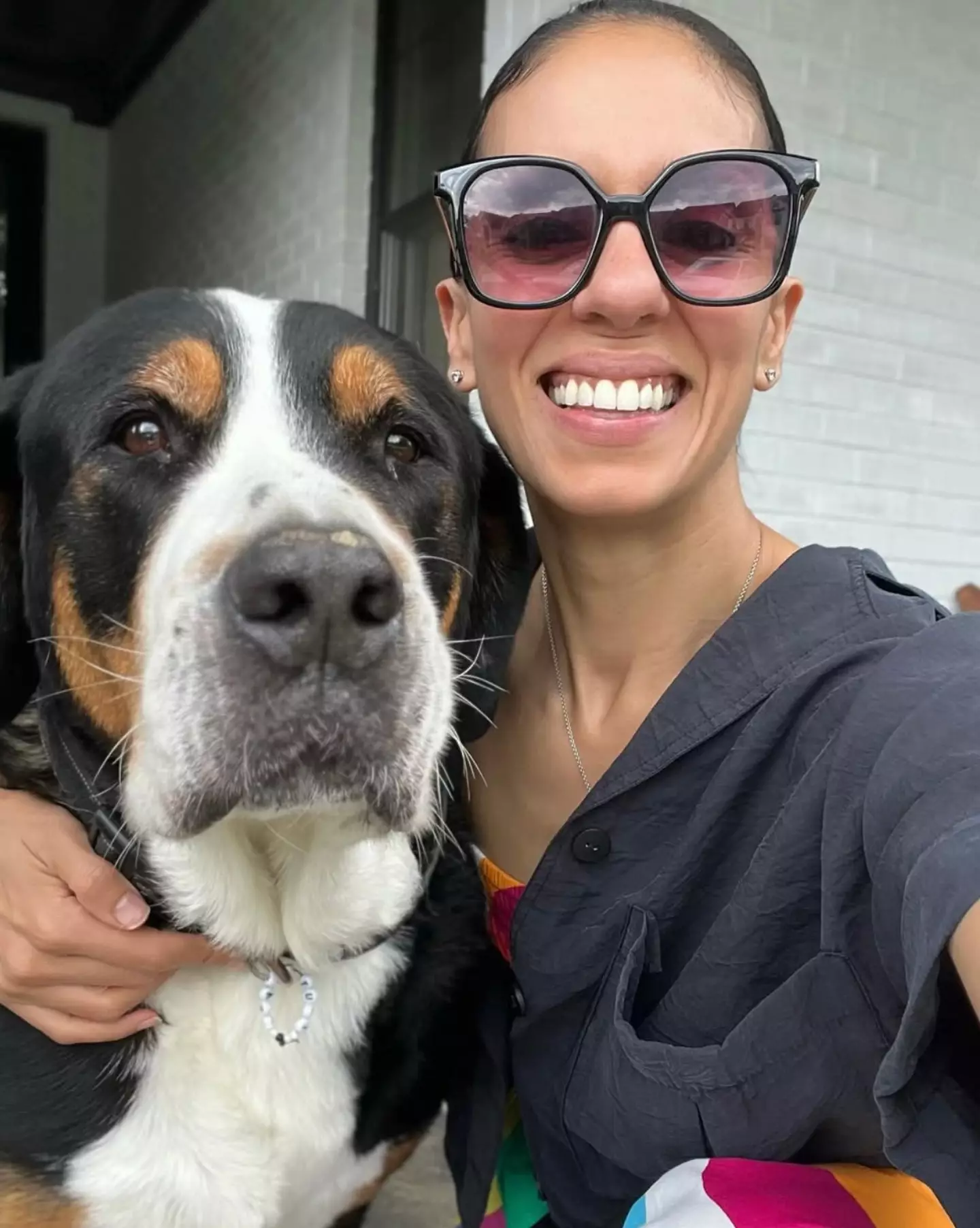
The palliative care specialist says her patients have influenced how she lives her own life (Instagram/@drsimran.malhotra)
She explained: “The elderly have had more time to live their lives…the young, on the other hand, are still in the midst of living.
“They still have so much potential and so many dreams yet to be realised. And that is why it is more difficult for them to come to terms with their own mortality and share words of acceptance.”
If you’re someone who’d struggle for a conversation starter in these kind of circumstances, she has some words of advice regarding what you could say.
Dr Malhotra urged people to get out the ‘simple things which matter most’ in a patient’s final hours, such as telling them you love them, thanking them or perhaps asking for forgiveness.
She added: “When the time does start to come near, I encourage all my patients and their families to share the things that matter most to them.
“[These words] can mean the world to someone in their final moments, and I’ve seen firsthand how much of a difference it makes.”Featured Image Credit: YouTube/@GrungeHQ/Getty Stock Images
Topics: Health, Lifestyle, News

Olivia Burke
Advert
Advert
Advert
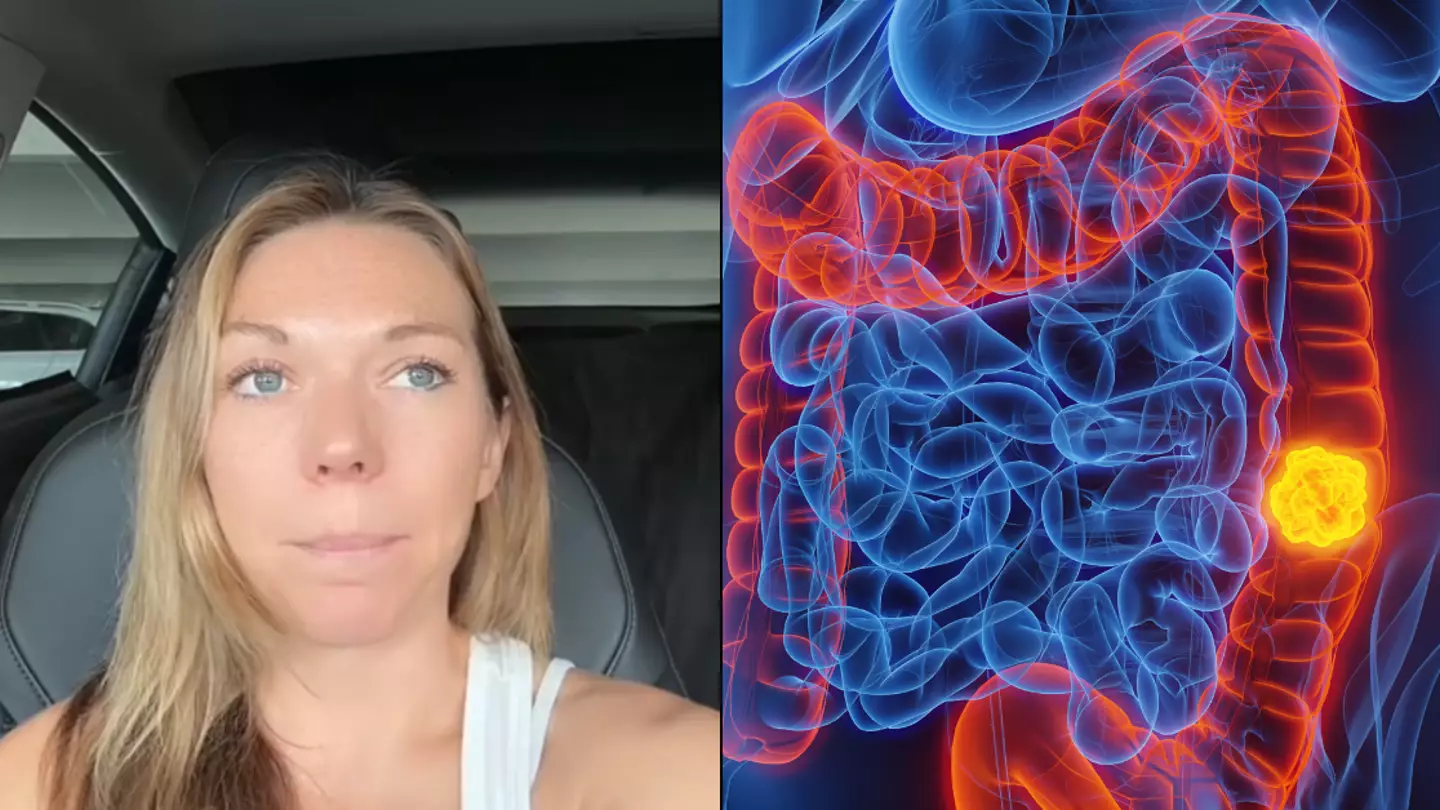
Published 16:25 13 Dec 2024 GMT
Woman diagnosed with hard-to-detect cancer shares key symptoms she had as cases soar among young people
Diagnosed with stage three cancer in her 30s, she initially brushed off symptoms

A woman diagnosed with a hard-to-detect cancer shared the key symptoms she experienced as cases soar among young people.
Earlier this year, figures found that bowel cancer (often referred to as colon or rectal cancer) was rising in those under 50 years old.
This type of the disease is when it’s found anywhere in the large bowel which includes the colon and rectum.
While it is one of the most common types of cancer in the UK, the symptoms can often be dismissed by patients as something else – but the NHS encourage early bowel cancer screenings as it may mean it’s easier to treat.
And only in her 30s, TikToker Bri Mahon found she had stage 3 colorectal cancer.
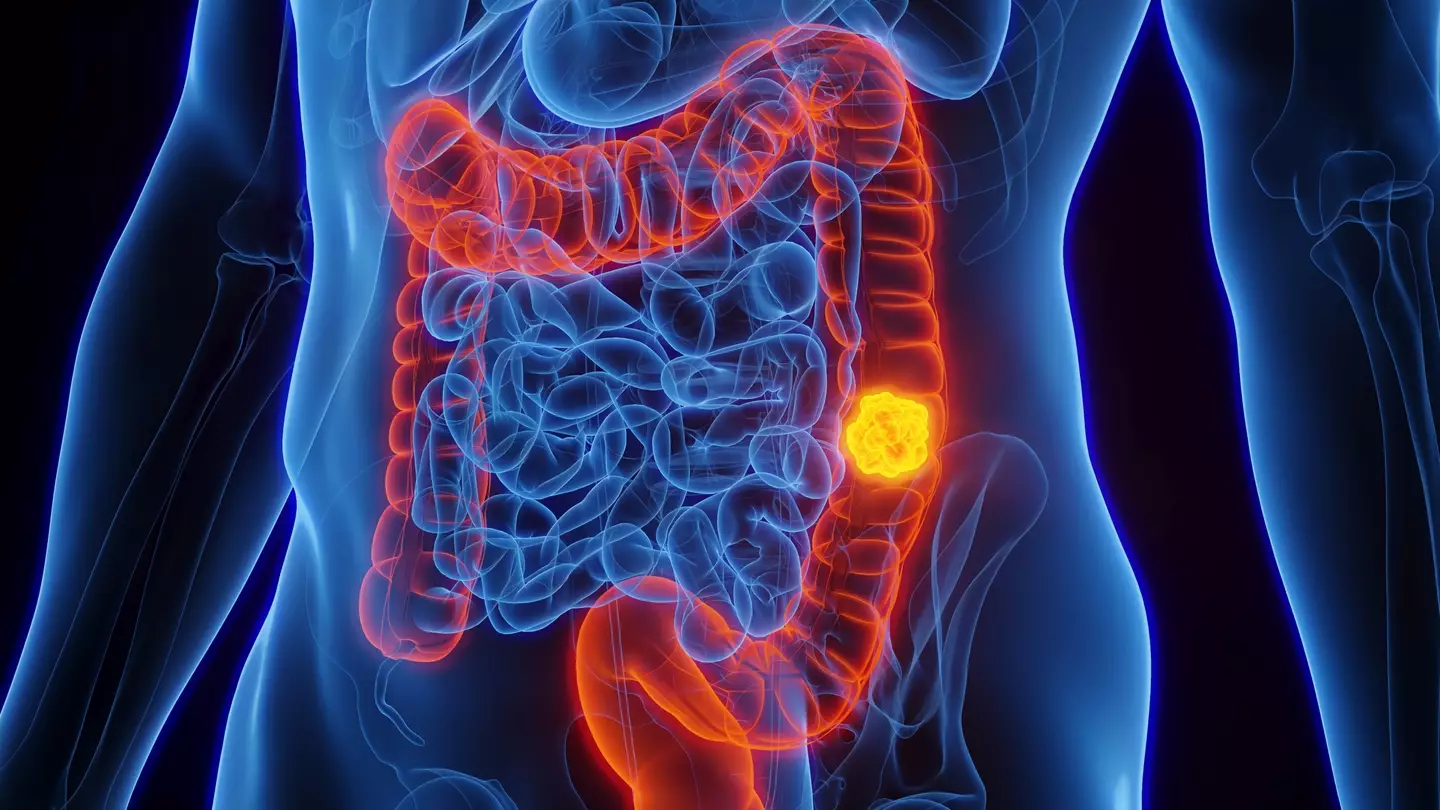
Bowel cancer is said to be one of the hardest cancer to detect (Getty Images)
She shared a video to the social media platform to share all of her symptoms that led to her ‘getting checked out and getting a colonoscopy’.
Bri says she had ‘just gut issues in general’ for some time like bloating, adding that the signs ‘would point more towards Irritable Bowel Syndrome (IBS)’.
But when she cut out the likes of gluten and dairy and took various allergy and blood tests, ‘nothing concerning came up’.
Feeling as though her stomach was ‘irritated and bloated a lot’, she then noticed a ‘change in her anxiety and fatigue’.
Around two years ago, she had to ‘step back’ from the work she was doing and thinks it’s because her body ‘was really, really, really tired’.
.jpg)
The woman brushed off her symptoms. (Getty Stock)
Then after giving birth to her twins premature, she noticed blood in her stool shortly after, passing it off as ‘haemorrhoids from pregnancy’.
“My IBS symptoms were flaring up, and I just kind of thought that was it,” Bri added.
With her babies in the NICU, she was stressed out and tired anyway so justified any fatigue and stomach problems as being down to that.
“But it’s when I found and started to see more regular blood in my stool. I got pretty concerned as kind of like red blood,” she explained.
“And then I really got concerned when the blood turned a lot darker, and my urgency to go to the bathroom was kind of like out of control, and I would either be insanely constipated or I’d be going to the bathroom and just dark blood would be coming out.”
Bri says this only happened for a few months and it led to her calling her doctor.
At first, they thought it could be an autoimmune disease, but following a colonoscopy and biopsies, they found it was stage three cancer.
To the list of bowel cancer symptoms, the NHS include blood in your poo, bleeding from your bottom and feeling very tired for no reason.
If your poo is black or dark red or you have bloody diarrhoea, you should ask for an urgent GP appointment or get help from NHS 111.
If you’re bleeding non-stop from your bottom or there’s a lot of blood, for example, the toilet water turns red or you see large blood clots, then go to A&E or call 999.